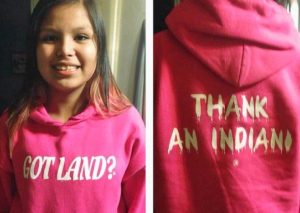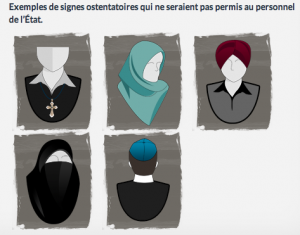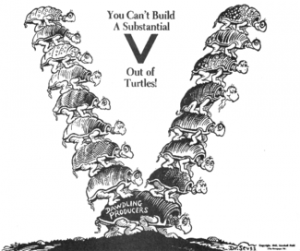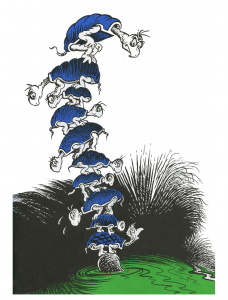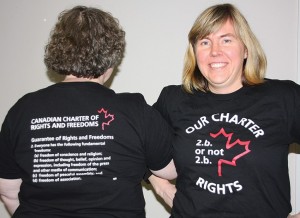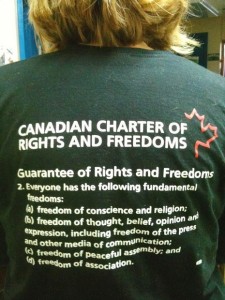With ICES
-
Recent Posts
- Palestinian Liberation in Education: Solidarities and Activism for a Free Palestine — Special Issue Call for Manuscripts
- Neoliberal Capitalism and Public Education: Special issue of Critical Education (Call for submissions)
- Critical Education Special Issue – Call for Submissions – CRITICAL HUMANISM AND PROBLEMS OF CHANGE
- New Issue of Critical Education
- CFP Workplace Special Issue: Third Space Academic Laborv
Recent Comments
- iit coaching in noida sector 62 on Working toward tuition free post-secondary education in BC and Canada
- Ahlam N Abdel Rahman on Workplace: A Journal for Academic Labor
- E Wayne Ross on Critical Education
- Dorothy Vaandering on Critical Education
- du lịch thái lan giá rẻ on Embarrassing recent events in Canadian higher education #cdnpse #GeorgeRammell #RobertBuckingham @usask
ICES Calendar
July 2024 M T W T F S S 1 2 3 4 5 6 7 8 9 10 11 12 13 14 15 16 17 18 19 20 21 22 23 24 25 26 27 28 29 30 31 Archives
Categories
Meta
Blogroll
Trends
Academic freedom Adjuncts Administration BC education BC Liberals BCTF British Columbia Budgets & Funding call for manuscripts CFP CFPs conferences Contracts Critical Education critical pedagogy critical theories curriculum studies education policy education reform Equity Ethics Faculty Free speech Government ICES Idle No More journals K-12 issues Legal issues neoliberalism Protests publications Research seminar Strikes Strikes & Labor Disputes Student Movement Students talks Teachers Testing UBC unions Working conditions Workplace JournalAuthors
Category Archives: Civil Liberties
“Got Land?” hoody continues to spark controversy #idlenomore #edstudies #bced #ubced #bcpoli
First Nations sweater sparks nationwide controversy
Canadian Civil Liberties Association, January 25, 2014– Thirteen-year-old student, Tenelle Starr, inadvertently became the centre of a nationwide controversy over just five words on her sweater: “Got Land? Thank an Indian.”
Starr, who lives on the Star Blanket First Nation reserve and attends Grade 8 in Balcarres, a small town approximately 100 kilometers from Regina, says she wore her sweater to promote her heritage and and treaty rights. (Read more) Starr says that she initially wore the sweater after Christmas break without incident, and was shocked when school officials later forbade her from wearing her sweater to school. She continued to wear it, however, and was instructed each time to either remove it or turn it inside out. According to school officials, other students and their parents were offended by the sweater, which they called “cheeky,” “rude,” and even “racist.” (Read more)
After meetings between the school, Starr, her mother, and the Star Blanket First Nation, school officials determined that the sweater was not inappropriate and that Starr would be able to wear it to school, according to the CBC.
Creator of the sweater, Jeff Menard, says that he’s been flooded with orders for his “Got Land?” t-shirts and sweaters following nationwide coverage of the controversy.
Read More: CCLA
Posted in BC Education, Civil Liberties, Critical Education, Environment, Equity, Ethics, Free speech, Government, Idle No More, K-12 issues, Protests, Student Movement, Student Speech, Students, Teachers
Tagged BC education, Equity, Ethics, Free speech, K-12 issues, Students, Teachers
January 28 National Day of Teach-ins focused on First Nations Education Act #idlenomore #ubc #bced #bcploi #occupyeducation #edstudies
Idle No More + Defenders of the Land
Teach-ins
January 28, 2014
Idle No More— As we begin a new year, we invite Idle No More groups to organize local teach-ins on January 28th based around the First Nation Education Act and the broader Termination Plan that it represents. We recognize that every Nation and community has their own unique stories, struggles, and practices and we hope that every teach-in is rooted in the on-the-ground realities that are the heart of the movement. When we include our local allies and supporters to attend, help, and promote local teach-ins we believe this adds strength to the bundle of arrows we continue to build through education.
As a support to teach-in organizers we are developing educational tools to use at local teach-ins that will focus on the First Nation Education Act and the broader Termination Plan of the Canadian government. Please feel free to use these tools, or to develop your own! We are also hoping that each teach-in will create a quick list of local struggles or issues and that we can share these lists to help guide the Idle No More movement.
We need to support one another as we continue to fight for our lands, water, sovereignty, and our future generations. We hope that these teach-ins help to deepen and strengthen our roots and prepare us for the work that lies ahead.
Read More: Idle No More
Posted in BC Education, Civil Liberties, Critical Education, Environment, Equity, Ethics, Free speech, Idle No More, K-12 issues, Organizing, Protests, Student Movement, Student Speech, Students, Teach-ins, Teachers
Tagged BC education, Critical Education, Equity, Ethics, Free speech, Government, Students, Teachers
‘Got Land?’ #IdleNoMore Day Of Action January 28 #bced #bcpoli #occupyeducation
Staff, Indian Country Media Network, Popular Resistance, January 26, 2014– Above photo: Courtesy Tenelle Starr/Via Metronews.ca, Tenelle Starr, a Grade 8 student at Balcarres Community School, wears her, “Got Land? Thank an Indian,” sweatshirt. Starr and other students wearing sweaters bearing that slogan were initially instructed to wear them inside-out due to complaints.
The grassroots Idle No More movement was already planning a national day of action across Canada for January 28 to teach people about the First Nations Education Act, which most Indigenous Peoples oppose. Now the organizers are exhorting everyone to dress for the occasion—in a “Got Land? Thank an Indian” t-shirt or sweatshirt.
Idle No More has scooped up 13-year-old Tenelle Starr, the eighth-grade student from Star Blanket First Nation who persuaded school officials to let her wear a hoodie with the words “Got Land?” on the front and “Thank an Indian” on the back.
Since that day, the shirt’s maker in Canada, Jeff Menard, has been swamped with orders. But now he might want to add another phone line. Idle No More is calling on everyone across Canada to don the slogan, which Menard sells on t-shirts and bibs in all sizes, in addition to hooded and non-hooded sweatshirts.
Menard has set up a website,Thank An Indian, to field and fulfill orders. The shirts, bibs and other items that he said are forthcoming are also showcased on his Facebook page of the same name. A portion of the proceeds will go to help the homeless.
Those wishing to buy the slogan south of the 49th Parallel can order at its U.S. source. The White Earth Land Recovery Project, part of the Native Harvest product line that is run by Ojibwe activist and author Winona LaDuke, has sold hoodies and t-shirts bearing the slogan for years. Menard has said he got the idea after seeing friends from the U.S. wearing similar shirts.
The message and the lesson have taken on new urgency as racist comments proliferated on Tenelle’s Facebook page to such a degree that it had to be taken down. But that has only solidified the teen’s determination to make a difference and to educate Canadians, which she said was her intial goal in wearing the shirt to school.
She received support, too, from Athabasca Chipewyan First Nation in Alberta, which invited her to the Neil Young concert in support of its efforts to quell development in the oil sands of the province. She attended the Saturday January 18 performance as an honorary guest, according to Idle No More’s website. Young is doing a series of concerts to raise funds for the Athabasca Chipewyan’s legal fight against industrial activity in the sands.
Tenelle “is now calling, along with the Idle No More movement, for people everywhere to don the shirt as an act of truth-telling and protest,”Idle No More said in a statement on January 17. “Now and up to a January 28 Day of Action, Tenelle and Idle No More and Defenders of the Land are encouraging people across the country to make the shirt and wear them to their schools, workplaces, or neighborhoods to spark conversations about Canada’s true record on Indigenous rights.”
CBC News reported that Tenelle’s Facebook page was shut down at the suggestion of the Royal Canadian Mounted Police (RCMP), which briefly investigated some intensely negative and racist comments that were posted on the girl’s page after the school ruling.
“It was racist remarks with attempts to shadow it in opinion, but they were pretty forceful, pretty racist,” Sheldon Poitras, a member of the band council for the Star Blanket First Nation, and a friend of the family, said to CBC News. “The family was concerned about Tenelle’s safety.”
The family deactivated Tenelle’s Facebook account “on advice from RCMP,” CBC News reported, and the RCMP confirmed that it was investigating.
The message is a quip laden with historical accuracy that refers to the 1874 document known as Treaty 4, which Star Blanket First Nation is part of, in which 13 signatory nations of Saulteaux and Cree deeded the land to the settlers of what would become modern-day Canada.
Nevertheless, many continue to view the message as racist. Idle No More aims to debunk that notion as well as clarify the historical record. Tenelle has participated in Idle No More rallies with her mother as well, the group said.
“Everyone can wear the shirt,” said Tenelle in the Idle No More statement. “I think of it as a teaching tool that can help bring awareness to our treaty and land rights. The truth about Canada’s bad treatment of First Nations may make some people uncomfortable, but understanding it is the only way Canada will change and start respecting First Nations.”
Although Menard said that support has been streaming in from chiefs and others throughout Canada for both him and Tenelle, there has been negative feedback that shows there’s still a lot of misinformation to be dispelled, he told ICTMN.
“I’ve been getting hate messages, Tenelle has been getting hate messages,” Menard said in a phone interview on January 21, but reiterated that the slogan merely reflects historical fact. “If anybody learns their history they see that the Indians were here first.”
Read More: Popular Resistance
Quebec teachers’ group calls Charter of Values extremist #bced
CTVNews, September 4, 2013– An organization of Quebec teachers is calling the Parti Quebecois’ so-called “Quebec Values” charter extremist, warning it could hinder some teachers’ right to work if they aren’t permitted to wear such religious garb as hijabs, kippas, turbans or crosses.
The Federation Autonome de L’Enseignment, or FAE, denounced the proposed charter on Wednesday, saying they support secular values but that individuals have the right to religious expression.
“The right of our members to work is at stake,” FAE president Sylvain Mallette told a news conference.
Quebec has come under fire from a number of rights groups over the proposed charter, which would seek to restrict public employees from wearing religious symbols in the workplace, including in schools, daycares and hospitals.
Premier Pauline Marois is expected to announce the legislation early next week.
Mallette says the FAE — a 32,000-strong organization of eight public teachers’ unions — supports secular values such as removing prayer from schools and regulating religious holidays. But she added the legislation slated to be tabled by the Parti Quebecois is something else altogether.
“It is hypocritical to legislate a charter of secular values beneath a religious icon,” said Mallette, calling on the provincial government to remove the crucifix that has been hanging in National Assembly since 1936.
Mallette also called for the provincial government to remove subsidies for religious schools, which make up half of the private schools in Quebec.
“The right to believe does not translate to unequal treatment and preferential rights,” Mallette said.
The FAE is only the latest group to chime in against the proposed charter.
Calgary Mayor Naheed Nenshi and Ontario Premier Kathleen Wynne both spoke out against the proposal earlier this week.
Nenshi said that residents of all faiths are welcome in his city, while Wynne said that diversity is the key to Ontario’s strength.
Read more: CTVNews
Posted in Civil Liberties, Ethics, Government, Protests, Students, Teachers, Unions
Tagged Equity, Students, unions, Working conditions
BC Teachers Federation scores landmark victory in academic freedom and freedom of expression #bcpoli
Well, it turns out that Dr. Seuss’s initial impression during the war that you can’t achieve a substantial victory out of turtles turns out to be wrong! This past week, after 3 years or a decade, depending how its measured, the BC Teachers’ Federation scored one of the most substantial court victories in academic and intellectual freedom for teachers in the last thirty years. The victory provides a substantial defense of educators’ civil liberties and free expression, critical education methods of instruction. And what’s more, it is a significant victory for students’ rights to critical content in the schools.
On 21 May, the BC Court of Appeal released its decision on the BCTF v. BC Public School Employers’ Association (BCPSEA) / Board of Education of School District No. 5. The case concerned “the extent to which teachers’ expression of political views on education issues in public schools is protected freedom of expression under s. 2(b) of the Canadian Charter of Rights and Freedoms:”
The political expressions in issue were messages critical of specific government education policies, contained on posters posted on classroom doors and school bulletin boards, and on buttons worn by teachers. Pursuant to a directive from the school district that political posters and information should not be displayed in school hallways, classrooms, or on school grounds, some principals told teachers to stop displaying the posters and wearing the buttons.
This case dates specifically to January 2009, when campaign materials, such as posters and buttons, were circulated by the BCTF to teachers across the province. On 23 April 2009, the Director of Instruction and HR from School District No. 5 (Southeast Kootenay) forwarded a directive principals in the district advising them that the BCTF’s political materials had no place on school grounds other than the staff room. On 1 May 2009, the Cranbrook and Fernie Teachers’ Association forwarded a note to the Director advising that it disagreed with the 23 April directive. Following a grievance filed by the BCTF, an arbitrator heard the case in March 2010 and denied the grievance, awarding in favour of the BCPSEA in October 2011.
The BCTF appealed the decision. Within Tuesday’s BC Court of Appeal decision is some of the strongest language for a defense of academic freedom for teachers and critical education methods:
There was no evidence in this case of any actual or potential harm to students from being exposed to the materials about educational issues, nor any facts from which an inference of harm could be drawn. On the contrary, Canadian jurisprudence, including Munroe, stands for the principle that open communication and debate about public, political issues is a hallmark of the free and democratic society the Charter is designed to protect. Children live in this diverse and multi-cultural society, and exposing them to diverse societal views and opinions is an important part of their educational experience.
Simply put, “the law supports the exercise by teachers of their right of free expression in schools.”
Court of Appeal Justice Hinkson provides a caveat:
I see no reason why students should receive less protection from the monopolization of the discourse of a societal issue than adults who are subjected to a flood of discourse on an electoral issue by proponents of one side to that issue. In the case of the students, the monopolization on the issue may deprive them of their right to be educated in a school system that is free from bias.
Where the issue upon which teachers choose to exercise their rights to free speech is a political one, their rights must be balanced against the rights of their students to an education that is free from bias. That brings into play, as it did in Harper, the concern that if a group is able to monopolize its message on any issue, competing views will be deprived of a reasonable opportunity to be heard…. However, the proportionality aspects of s. 1 of the Charter reserve for another case the evidence required to establish and the point at which teachers’ rights of freedom of expression in schools must yield to the rights of students to be educated in a school system that is free from bias.
This landmark decision will certainly be put to test, as the case more generally dates back to over a decade of to-and-fro decisions over academic freedom for BC teachers and their right to free expression. Indeed, one of the best case studies of political speech and symbolic speech is that of the BCTF v. the BC Ministry of Education and BCPSEA from about 2002 to this present decision. Throughout this decade, BC teachers have progressively and systematically tested their rights to political and symbolic speech: posters on school bulletin boards, black arm bands, buttons, letters to parents, t-shirts, bumper stickers on cars in the school parking lot, and wearing black clothes.
“Your Majesty, please… I don’t like to complain,
But down here below, we are feeling great pain.
I know, up on top you are seeing great sights,
But down here at the bottom we, too, should have rights.”
In April 2012, amidst another round of disputed bargaining practices and the government’s imposition of the controversial Bill 22, teachers raised questions: “A Prince Rupert elementary teacher has been told a quote from Dr. Seuss’s Yertle the Turtle is a political statement that should not be displayed or worn on clothing in her classroom. The teacher included the quote in material she brought to a meeting with management after she received a notice relating to union material visible in her car on school property.”
Eight teachers in the Prince Rupert district received letters warning of “discipline for displaying political messages.” Joanna Larson, president of the Prince Rupert District Teachers’ local said “the administration doesn’t want students to see the messages.” “We feel very censored here right now. We have feelings that our rights to freedom of expression have been violated.”
To accent the 11th anniversary of BC government’s oppressive bills 27 and 28, which prevented the teachers from bargaining on issue such as class size, the BCTF and teachers organized a protest for January 28, 2013– a “Dark Day for Education” and “Wear Black Day.” Teachers wore black in their classrooms while the BCPSEA cautioned that “regardless of the colour of attire worn, teachers should not engage students in discussion about their political views.” Some teachers in Prince Rupert responded with new black t-shirts, this time remediating Shakespeare and quoting section 2(b) from the Canadian Charter of Rights and Freedoms. But three teachers were told to remove or cover the shirts.
The BC Civil Liberties Association (BCCLA) weighed in on 4 February 2013 by forwarding a letter to the Prince Rupert School Board and arguing that the ban was unconstitutional: “The school district’s decision to ban free speech about free speech reminds us of a badly-written comedy sketch. But this isn’t an Air Farce skit, it’s a troubling violation of teachers’ constitutional right to free expression,” said Lindsay Lyster, President of the BCCLA. “The School District has an obligation to respect free speech, and there is no lawful justification for the District to ban these t-shirts.”
Of course, quoting or paraphrasing one’s civil liberties in defiance has been part and parcel of protests throughout the past 300 years. And arguably one of the best political works in the Dr. Seuss catalog, Yertle the Turtle has for five decades been used for purposes of instruction in the classroom and symbolic and political speech, inside and out. Notoriously, the Red Hot Chili Peppers first rocked their expressive version of Yertle the Turtle in 1985. Most recently leading up to the Prince Rupert teacher’s utilization of parts of the text, Yertle the Turtle was used in the protests at the Wisconsin legislature in 2011 and the Occupy movement beginning in September 2011.
ICES colleague E. Wayne Ross recently articulated the necessity of “dangerous citizenship”— “critical citizenship, or social justice oriented citizenship” and civil liberties citizenship— in opposition to liberal notions of “good citizenship” that somehow pass for education in the schools. “There is a misguided and unfortunate tendency in our society to believe that activities that strengthen or maintain the status quo are neutral or at least non-political,” Wayne observes, “while activities that critique or challenge the status quo are ‘political’ and inappropriate.”
A breath of fresh air, Tuesday’s decision from the BC Court of Appeal changes the tide for teachers. BCTF President Susan Lambert was buoyed by the decision, noting that
it’s about the right of teachers to express their concerns about the working conditions that they teach in and the learning conditions the students are taught in… It’s very important that we as a society encourage teachers to express their views and that we take those views seriously…. You don’t discuss and encourage critical thinking in children by shielding them from diverse views.
Posted in Academic freedom, BC Education, Civil Liberties, Ethics, Free speech, Government, K-12 issues, Legal issues, Protests, Strikes & Labor, Students, Teachers, Unions, Working condition
Tagged Academic freedom, BCTF, Critical Education, Faculty, Free speech, K-12 issues, Protests, Strikes & Labor Disputes, Students, Working conditions
BCCLA challenges “laughable” ban on free speech by Prince Rupert school board
BC Civil Liberties Association — The BCCLA is calling on the Prince Rupert School District (No. 052) to reverse its ban on teachers wearing t-shirts displaying section 2 of the Canadian Charter of Rights and Freedoms, the provision that protects free speech. The t-shirts display the Shakespeare-inspired question “2(b) or not 2(b)?” on the front, and the text of section 2 of the Charter on the back: 2(a) freedom of religion, 2(b) freedom of expression, 2(c) freedom of peaceful assembly, and 2(d) freedom of association.
The BCCLA argues that the ban on these t-shirts is a violation of the constitutional right to free speech displayed on the t-shirt itself. Freedom of expression guarantees the rights of speakers and listeners alike. In banning these shirts, the School District has violated both the teachers’ and students’ rights to learn, think and talk about their fundamental freedoms.
“The school district’s decision to ban free speech about free speech reminds us of a badly-written comedy sketch. But this isn’t an Air Farce skit, it’s a troubling violation of teachers’ constitutional right to free expression,” said Lindsay Lyster, President of the BCCLA. “The School District has an obligation to respect free speech, and there is no lawful justification for the District to ban these t-shirts.”
As a government body, School District No. 052 is bound by the Charter of Rights and Freedoms, including the guarantee of freedom of expression and freedom of association. Governments can only limit such rights in a narrow range of circumstances, according to legal tests established by the Supreme Court of Canada.
Lyster added that the ban on these t-shirts is contrary to the principle that schools should be places for open discussion and inquiry: “Banning these t-shirts seems to be short-sighted attempt to cut off discussion and thinking about the basic constitutional rights that the t-shirts display. We assume that this ban has provoked a lot of discussion among Prince Rupert students. Unfortunately, the District has provided an example of a government violating the constitutional rights for its students to discuss, rather than the better example of a government respecting those rights.”
See the BCCLA’s Letter to Prince Rupert School District Board
Posted in BC Education, Civil Liberties, Free speech, K-12 issues, Protests, Teachers, Unions, Working condition
Tagged BCTF, Free speech, K-12 issues, Protests, Working conditions
BC Civil Liberties Association wades in on teacher controversy
Vancouver Sun, Zoe McKnight, February 4, 2013 — The British Columbia Civil Liberties Association is accusing the Prince Rupert school board of infringing on teachers’ freedom of speech by banning the wearing of t-shirts printed with those exact Charter rights.
Three teachers in School District 52 were told last Monday to remove or cover their black t-shirts emblazoned with wording from Section 2 of the Canadian Charter of Rights, which includes the right to freedom of conscience and religion, freedom of thought and expression, freedom of peaceful assembly and freedom of association.
“The school district’s decision to ban free speech about free speech reminds us of a badly-written comedy sketch. But this isn’t an Air Farce skit — it’s a troubling violation of teachers’ constitutional right to free expression,” BCCLA president Lindsay Lyster said, adding that schools have an obligation to encourage open discussion.
In an open letter to chair Tina Last and other board members, Lyster asks the school district to rescind the ban on the t-shirts, which were part of a protest organized last week by the B.C. teachers’ union to mark the 11th anniversary of legislation stripping teachers’ rights to bargain class size and composition.
The school board said the t-shirts were a form of political messaging, which is against the rules.
Read more: Vancouver Sun
Posted in BC Education, Civil Liberties, Free speech, K-12 issues, Legal issues, Protests, Unions
Tagged BCTF, Free speech, K-12 issues, Legal issues, Protests, Working conditions


 Follow
Follow
